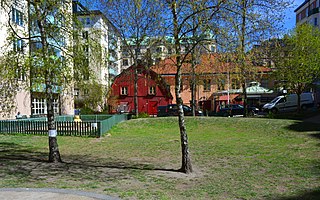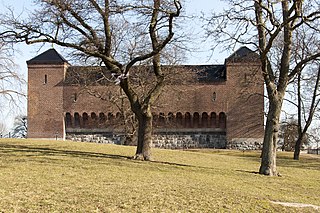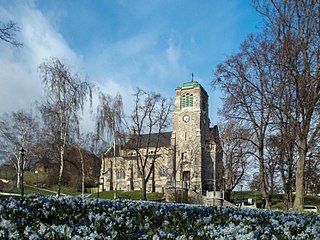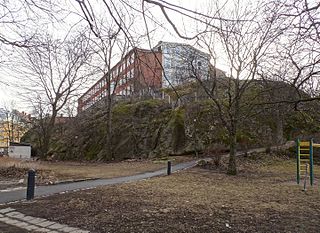Self-guided Sightseeing Tour #3 in Stockholm, Sweden
Legend
Guided Free Walking Tours
Book free guided walking tours in Stockholm.
Guided Sightseeing Tours
Book guided sightseeing tours and activities in Stockholm.
Tour Facts
2.3 km
51 m
Experience Stockholm in Sweden in a whole new way with our free self-guided sightseeing tour. This site not only offers you practical information and insider tips, but also a rich variety of activities and sights you shouldn't miss. Whether you love art and culture, want to explore historical sites or simply want to experience the vibrant atmosphere of a lively city - you'll find everything you need for your personal adventure here.
Activities in StockholmIndividual Sights in StockholmSight 1: Kristi förklarings ortodoxa kyrka
The Orthodox Church of the Transfiguration of Christ is a Bulgarian Orthodox church building and parish located at Birger Jarlsgatan 98, in the district of Östermalm, in central Stockholm.
Wikipedia: Kristi förklarings ortodoxa kyrka, Stockholm (SV)
Sight 2: Sankt Georgios kyrka
St. George's Church, Stockholm Church of St. George, Istanbul
Sight 3: Monica Zetterlunds Park
Monica Zetterlund's park. or Zetterlunden, a park in Vasastaden, Stockholm.
Sight 4: Vanadislundens vattenreservoar
The Vanadislunden Water Reservoir or the Vanadislund Reservoir is a large water reservoir within the Vanadislunden Reservoir in the Vasastaden district of Stockholm. The Vanadislund reservoir currently (2009) has a water volume of 8,100 m³.
Sight 5: Stefanskyrkan
St. Stephen's Church or St. Stephen's Church is a church building in St. John's parish that is part of the Cathedral Contract of the Diocese of Stockholm. The church was built in 1904 and is located at Frejgatan 20B at the southern end of Vanadislunden in Vasastaden in central Stockholm.
Sight 6: Enkehusparken
Enkehusparken is a park in Vasastan in central Stockholm that was founded in the 1870s. The Heimdall 22 property with the Widow's House and the park is considered to have very high cultural-historical values according to the City Museum's cultural-historical classification map. The park is one of the few parks in Stockholm that is located inside a block, namely in the Heimdall block. It is surrounded by Norrtullsgatan, Vanadisvägen, Upplandsgatan and Frejgatan. Facing Frejgatan and Upplandsgatan, the park is surrounded by early 1900s houses mixed with a few functionalist houses from the time around World War II. Facing Vanadisvägen there is a large modern residential complex in brick. The main part of the side facing Norrtullsgatan is taken up by the old Widow's House, which gives the park its name and which now houses artists' studios. Entrances to the park are from Norrtullsgatan on both sides of the Widow's House and from Vanadisvägen. In the only courtyard house in the block there is a school.
Sight 7: Sankt Eriksparken
Sankt Eriksparken was a park at Kvarteret Flygmaskin in the Vasastaden district of Stockholm, adjacent to Kvarteret Sländan. The park was located between Norra Stationsgatan to the north, Dannemoragatan to the east, Sankt Eriksgatan to the west and Upplandsgatan/Västmannagatan to the south. At Sankt Eriksparken's site there is now an extension of Rödabergsskolan.
Share
How likely are you to recommend us?
Disclaimer Please be aware of your surroundings and do not enter private property. We are not liable for any damages that occur during the tours.
GPX-Download For navigation apps and GPS devices you can download the tour as a GPX file.




